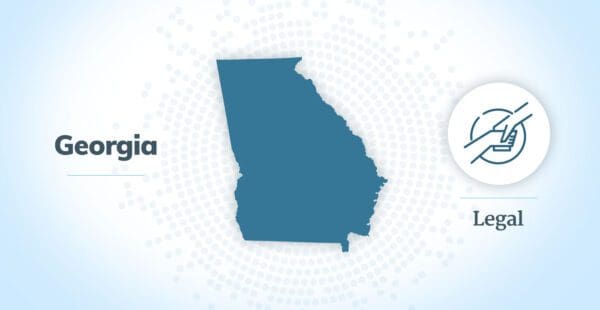01. Georgia Law Firms
Top Mesothelioma Law Firms in Georgia
Georgia mesothelioma law firms specialize in getting asbestos victims compensation. They focus their legal practices on holding companies accountable for causing asbestos illnesses. Mesothelioma lawyers at these firms can handle the legal process on behalf of their clients, from filing lawsuits to negotiating settlements.
The following law firms can help people living in Georgia receive compensation:
Hiring an experienced mesothelioma law firm comes with several advantages. Asbestos cases involve complex medical and institutional information. These firms have specialized knowledge of mesothelioma cancer and the history of asbestos use. They also have the resources to build and present legal cases in a compelling way.
Asbestos law firms also work to make the lawsuit experience as stress-free as possible for patients and family members. They often travel to clients for in-person meetings. They also act as their clients’ representatives in court, leaving asbestos victims more time to focus on mesothelioma treatment and being with their loved ones.
Resources for Mesothelioma Patients
02. Filing Lawsuits in Georgia
Filing Mesothelioma Lawsuits in Georgia
Georgia mesothelioma lawyers begin asbestos lawsuits by filing them in court on behalf of their clients. People affected by asbestos exposure may have other options for compensation. Mesothelioma lawyers can also file claims seeking additional financial compensation, such as asbestos trust fund claims.
Both Georgia mesothelioma patients and family members of deceased patients may be able to file lawsuits. Between 1999 and 2019, over 1,000 cases of mesothelioma were documented in Georgia. From 1999 to 2020, over 850 people in the state died from the disease.
Many victims of Georgia asbestos exposure have filed lawsuits against asbestos companies. These victims have received compensation from companies such as:
- Bibb Manufacturing Company
- Coca-Cola Bottling Company
- General Electric Company
- Georgia-Pacific Corporation
- International Paper Company
- Procter & Gamble
These companies and many others have a history of asbestos use. For most of the 20th century, asbestos was a common part of many manufacturing processes and product components.
Today, Georgians continue to develop asbestos diseases as a result of exposures that occurred decades ago. Those who develop mesothelioma, asbestos lung cancer and other related diseases may be able to file lawsuits.
Who Is Eligible to File a Mesothelioma Lawsuit in Georgia?
Georgia residents and workers have been exposed to asbestos at various locations throughout the state. Those who develop mesothelioma after exposure may be eligible to file personal injury lawsuits. Family members whose loved ones have died from mesothelioma may be able to file wrongful death lawsuits.
Asbestos companies put many people at risk of exposure past the time when the mineral’s dangers became known. For example, Georgia-Pacific, an Atlanta-based company, failed to put warning labels on its Ready-Mix joint compound for years after it learned of the dangers of asbestos. The company also funded misleading research to cast doubt on the health risks of asbestos exposure.
As a result, many people have been at risk of exposure because of Georgia-Pacific. Their products have been used by construction workers in building projects. They also pose a risk to homeowners, firefighters and others who may come into contact with them.
Residents of Georgia who live in the following cities and towns have filed mesothelioma lawsuits to seek compensation from manufacturers and distributors of asbestos:
- Athens, GA
- Atlanta, GA
- Augusta, GA
- Brunswick, GA
- Buchanan, GA
- Centerville, GA
- College Park, GA
- Columbus, GA
- Conyers, GA
- Covington, GA
- Crawfordville, GA
- Cumming, GA
- Dacula, GA
- Dallas, GA
- Dalton, GA
- Decatur, GA
- Donalsonville, GA
- Ellijay, GA
- Fayetteville, GA
- Folkston, GA
- Gainesville, GA
- Griffin, GA
- Hazelhurst, GA
- Hiram, GA
- Homerville, GA
- Jonesboro, GA
- Kennesaw, GA
- Lagrange, GA
- Lilburn, GA
- Macon, GA
- Marietta, GA
- Millen, GA
- Murrayville, GA
- Nahunta, GA
- Newnan, GA
- Reynolds, GA
- Ringgold, GA
- Rockmart, GA
- Rome, GA
- Rossville, GA
- Savannah, GA
- Silver Creek, GA
- Smyrna, GA
- Snellville, GA
- St. George, GA
- Statesboro, GA
- Stockbridge, GA
- Stone Mountain, GA
- Trenton, GA
- Tucker, GA
- Waleska, GA
- Waycross, GA
- Winder, GA
Deadlines for Filing a Mesothelioma Lawsuit in Georgia
Georgia requires asbestos lawsuits to be filed within certain timelines. These timelines are outlined in state-specific laws called statutes of limitations. Mesothelioma statutes of limitations cover both personal injury and wrongful death lawsuits.
A patient files a personal injury lawsuit after a mesothelioma diagnosis. A family member files a wrongful death lawsuit after the death of a mesothelioma patient.
Georgia asbestos victims may also be eligible to file in other states. A mesothelioma lawyer can help determine the most advantageous location to file a lawsuit. They can also file for additional compensation from asbestos trust funds and other sources.
Filing VA Claims in Georgia
Veterans have historically been at high risk of asbestos exposure. During the 20th century, the U.S. military used many asbestos products supplied by manufacturers. In acknowledgment of their service, the U.S. Department of Veterans Affairs (VA) offers benefits to those who develop asbestos diseases caused by exposure during their time in the military.
As of 2021, Georgia had the ninth-highest population of veterans in the country. The state is also home to the following military bases:
- Fort Gordon
- Fort Moore
- Fort Stewart
- Hunter Army Airfield
Mesothelioma lawyers can file for VA benefits on behalf of service members. Filing for benefits does not prevent veterans from seeking compensation for their exposure via lawsuits and trust fund claims against responsible companies.
03. Georgia Settlements & Verdicts
Mesothelioma Settlements in Georgia
Georgians affected by asbestos diseases have received financial compensation from lawsuits. Asbestos lawsuits may result in settlements or verdicts. A settlement is a private agreement between a company and an asbestos victim to end a lawsuit in exchange for a certain sum. A verdict is an award granted by a judge or jury at the end of a trial.
Mesothelioma compensation helps cover costs associated with a diagnosis or death. These include treatment costs, travel expenses and loss of income. Individuals in Georgia have received multi-million dollar settlements from responsible companies.
Examples of Georgia mesothelioma settlements include:
- $6.4 million for an 87-year-old teacher with talc exposure (Johnson & Johnson products)
- $4.3 million for a 44-year-old household worker with secondary exposure
- $2.7 million for a 73-year-old pipe installer and powerhouse worker
- $2.5 million for a 66-year-old Navy veteran
- $2.4 million for an 81-year-old steel worker
- $2.4 million for a 72-year-old pipe insulator
- $1.8 million for a 51-year-old safety consultant and DIY home renovator
- $1.8 million for a 74-year-old industrial painter
- $1.6 million for a 70-year-old auto mechanic
Note: Each lawsuit is different, and prior results do not guarantee a similar outcome in the future. Contact a reputable Georgia mesothelioma lawyer to understand how much compensation you may be eligible to receive.
04. Asbestos Laws in Georgia
Georgia Asbestos Laws & Regulations
Georgia has asbestos laws and regulations that affect lawsuits and the way asbestos is handled in the state. Asbestos regulations are currently handled by the state’s Environmental Protection Division (EPD) and the U.S. Environmental Protection Agency (EPA).
In 2009, Georgia defunded its asbestos abatement program and transferred most of its responsibilities to the EPA. The state is still responsible for some tasks, such as issuing permits and contractor licenses. The EPA conducts inspections and handles enforcement of regulations for commercial, public and some residential projects.
Until recently, Georgia’s Department of Natural Resources handled the state’s responsibilities under its agreement with the EPA. However, a 2017 investigation found that the department consistently failed to look into whether licensed inspectors checked for asbestos before beginning demolition projects. After the investigation, the EDP took over the state’s regulatory duties.
Georgia Laws Affecting Asbestos Litigation
Georgia has several laws that affect how asbestos litigation is handled. Some of these laws may be considered favorable to asbestos companies. A mesothelioma lawyer can determine if it would be advantageous for a Georgia resident to file in or out of state on a case-by-case basis.
Laws surrounding asbestos liability and litigation touch on the following topics:
- Filing requirements: Georgia requires asbestos victims to submit highly detailed filings for their lawsuits to move forward. The filing must include relevant medical reports, work histories and dates and other information.
- Secondary exposure: Secondary exposure can occur when a worker brings home asbestos from a jobsite, thereby exposing other people at home. In 2016, the Supreme Court of Georgia decided that manufacturers are not liable for secondary asbestos exposures.
- Trust transparency: During lawsuits, asbestos victims must give the court information about all trusts they have and may be able to file against.
As of May 2007, Georgia also imposes certain limitations on who can file asbestos lawsuits in the state. Asbestos lawsuits must be filed by either current Georgia residents or people exposed to asbestos in Georgia. Georgia-based asbestos companies have narrower liabilities under this law than they do in other states.
Georgia mesothelioma lawyers can help residents and workers explore all their options for compensation.










